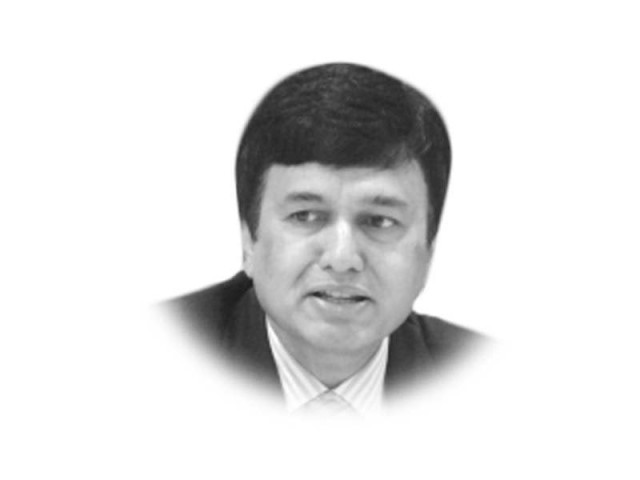Significance of voluntary blood donations
In Pakistan, the global HIV/AIDS epidemic brought to centrestage the significance of safe blood transfusions

The writer is Project Director, Safe Blood Transfusion Programme, Government of Pakistan
World Blood Donor Day: ‘Around 245,000 blood donations made in Karachi every year’
Every year, the WHO identifies a new theme to celebrate the day. The theme for the year 2016 is "Blood connects us all". It strongly encourages people all over the world to donate blood regularly with the slogan, “Share life. Give blood.” Since the last few years, the World Blood Donor Day is being celebrated in Pakistan with increasing participation. The activities are led by the government’s Safe Blood Transfusion Programme which was established in 2010 with support from the German government. As a result of the untiring efforts of all partners and stakeholders, a national platform has been created and the Programme has emerged as the national voice on blood safety, not only within the country but also internationally.
The Safe Blood Transfusion Programme has been different from other development programmes, not only because of the nature of the work, but also in allowing the increasing and full participation of local counterparts in the design and implementation work. The international expertise brought in, through Pak-German cooperation, is compatible with and complementary to existing local structures. Before the launch of this initiative by the government to create the internationally recommended, centrally coordinated blood transfusion system in Pakistan, the entire national scenario was dominated by a demand-driven, fragmented blood transfusion system which is not only hazardous but also promotes unsafe transfusions. Individual arrangements were in place in the provinces; separate blood safety legislations were promulgated but never implemented. As a result, there was mushrooming of blood banks with the private/non-profit sector stepping up to the best of their capacity. Most significantly, there was no national or regional platform to discuss and develop national consensus on blood donor-related issues.
As in other countries, in Pakistan too, the global HIV/AIDS epidemic brought to centrestage the significance of safe blood transfusions. Accordingly, the origins of the Safe Blood Transfusion Programme also relates to concerns in HIV/AIDS control. In 2011, shortly before devolution, Safe Blood Transfusion was made a separate programme outside the confines, protection and limitations of the AIDS Control Programme. Devolution temporarily slowed down the process but the commitment of the Programme's leadership ensured that the challenges of the transition phase were successfully overcome.
The project dynamics have attracted other international development partners such as WHO, IFRC, USAID etc. This momentum must be kept alive and made irreversible. The health departments have to assume a stronger guiding role. Colleges and universities have to be integrated into the reform process, which can partly be done through the introduction of a new and more comprehensive curriculum. Large hospitals can contribute through their hospital transfusion committees. The regulation of the sector has to be strengthened through promulgating the updated transfusion laws and the establishment of operational Blood Transfusion Authorities in all provinces. Annual progress conferences should be instituted to jointly monitor and make adjustments to the process. The new regional blood centres must cooperate with the Blood Donor Organisations (BDO) and the NGO sector in promoting the concept of regular and voluntary non-remunerated blood donations (VNRBD). A joint effort to firmly introduce the concept of VNRBD is required.
Safe blood transfusion: Work on second phase of project from June
The successful functioning and sustainability of this immensely important blood safety project is dependent on the creation of a pool of young, healthy, voluntary blood donors who donate blood on a regular basis without any financial remuneration or reward. If two to three per cent of our total population becomes a part of this pool, we will be successful in achieving the target of 100 per cent reliance on voluntary blood donations. To promote the culture of voluntary blood donations, the Programme is engaging with the existing BDOs in universities and colleges and has established a network of these organisations and is providing them technical guidance and support. At the same time, the Programme is focusing on the existing replacement donors i.e., the donors who are friends and relatives of the patients who need blood transfusion. Outsourcing the responsibility of mobilising blood donors to the patients is an immoral practice and needs to be discontinued as it places additional burden on the stressed out families and there is also an element of coercion involved. The Programme is working towards the conversion of these replacement donors and sifting the suitable donors among them to convert them into voluntary donors who should continue to donate blood on a regular basis anonymously for anonymous patient.
The World Blood Donor Day celebrations in Pakistan and youth participation help secure and strengthen the resources and efforts invested thus far in the project. Continued efforts in this course will help realise the vision of access to safe, efficacious and affordable blood, which is a basic human right. The reforms process has not yet reached a point of no return and success achieved so far needs to be managed to deliver safe blood and blood products to the people of Pakistan.
Published in The Express Tribune, June 15th, 2016.
Like Opinion & Editorial on Facebook, follow @ETOpEd on Twitter to receive all updates on all our daily pieces.















COMMENTS
Comments are moderated and generally will be posted if they are on-topic and not abusive.
For more information, please see our Comments FAQ